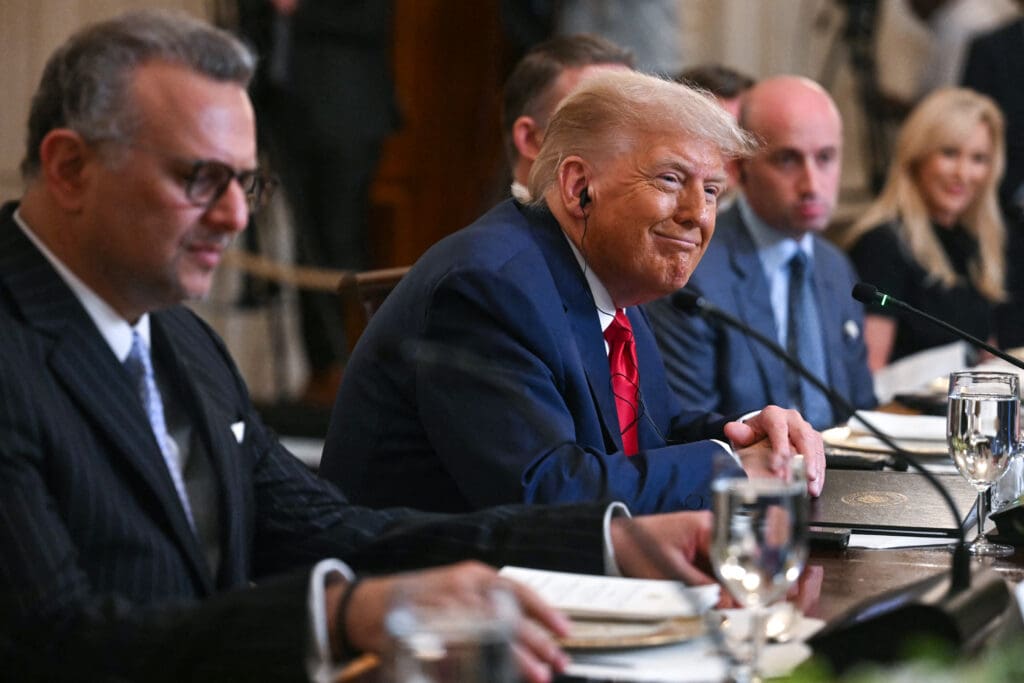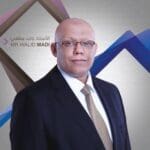A quiet visit to Libya by a senior Trump advisor has raised the specter of Washington taking a renewed interest in the North African country—and the question of whether such engagement could help finally resolve the country’s prolonged political deadlock.
Massad Boulos, who advises U.S. President Donald Trump on Middle Eastern and African affairs, visited Libya in July. He arrived in Tripoli weeks after an episode of deadly unrest in the capital, where clashes between rival militias, fueled by competition over territorial control and communal loyalties, were compounded by public anger over the stalled political process and collapsing services, raising fears of prolonged conflict.
While Libya’s entrenched actors have proven perennially adept at avoiding any meaningful concessions—not least to the Libyan street—the visit followed major changes in the wider region that could herald a shift in Washington’s calculus on Libya.
Shortly after the fall of Syrian president Bashar al-Assad in December, Russia redeployed naval assets from Syria to eastern Libya, rekindling fears of an expanding Russian foothold on the southern Mediterranean. It is notable that Russia continues to cultivate strong ties both with strategic actors in eastern Libya and their rivals in the west, albeit with a clear preference for the former.
Moscow has long supported eastern military chief Khalifa Haftar and his self-styled Libyan National Army (LNA) with military advisors, logistical backing and political coordination. But talking to both Haftar and his adversaries allows Russia to maintain leverage across Libya’s fractured landscape while deepening its foothold on the southern Mediterranean and NATO’s southern flank.
The visit by Boulos, fresh from negotiating a sweeping peace agreement between the Democratic Republic of Congo (DRC) and Rwanda—after the groundwork had been laid by Qatari mediation—suggests that this shift may have convinced the U.S. that the country is worth pay closer attention. Boulos and his delegation met a wide range of Libyan actors from both west and east. In Tripoli, he met Prime Minister Abdulhamid Dbeibah and Presidential Council head Mohamed al-Menfi, while in Benghazi, he held talks with Haftar and with House of Representatives (HoR) Speaker Aguila Saleh.
These nominal authorities in both east and west operate in tandem with armed factions that constitute the true backbone of their respective local power bases. In Tripoli, Dbeibah’s authority is enforced by militias such as the Joint Operations Force (JOF), while in the east, the HoR’s political relevance rests on the military power of the LNA. Each political bloc and its affiliated armed groups operate as a single camp, consolidating both formal authority and coercive power into two unified de facto ruling structures.
Rather than endorsing one camp over the other, Washington appears to be engaging both de facto authorities to assess their willingness to participate in a more balanced, possibly U.S.-led framework aimed at restoring order and limiting external interference—particularly from Russia.
In western Libya, Dbeibah continues to enjoy implicit U.S. recognition as head of the internationally recognized government. However, Washington now appears to favor a pragmatic acknowledgment of the country’s political division, possibly paving the way for new political tracks.
This approach may indicate a shift toward managing division rather than resolving it, given the lack of a clear mechanism for compelling entrenched actors to make meaningful concessions. This approach is likely designed to secure immediate U.S. interests, particularly in energy and security, by maintaining a functional balance between rival authorities. Within this framework, reviving Libya’s constitutional process could offer not a rapid solution, but a tool for delaying political reckoning and buying time for current powers to reposition themselves. Libyan elites, for their part, are left to interpret whether this window presents a chance for realignment—or a warning against miscalculation.
Energy Leverage and the Politics of Investment
Beyond diplomacy, the visit carried a strong economic component, particularly in the energy sector that accounts for the vast majority of Libya’s GDP and state revenue. Boulos announced a pending memorandum of understanding between Libya’s National Oil Corporation (NOC) and ExxonMobil to begin offshore gas exploration, a step that could elevate Libya’s role in global energy markets. Another deal, nearing completion and involving the Waha Oil Company and U.S. partner ConocoPhillips, aims to expand production from the Waha field. In Tripoli, Boulos witnessed the signing of a $235 million agreement between Mellitah Oil & Gas and American firm Hill International to support major gas infrastructure development.
Yet the implementation of these deals remains far from guaranteed. Their success hinges on Libya’s ability to provide a minimum level of political coherence, security assurances and administrative coordination—tall orders in today’s Libya. Without progress on these fronts, foreign investors may hesitate to follow through on announced commitments.
That said, these moves reflect Washington’s intent to consolidate its economic influence in Libya, leveraging U.S. energy corporations as vehicles of strategic engagement amid growing competition from Russia, Italy and Türkiye. But energy is not just an economic interest; it is a tool of political leverage. Investment is being used as a stabilizing force, implicitly rewarding those capable of offering secure environments for foreign capital.
In this regard, Boulos’s meeting with Haftar’s son . While still operating under the shadow of his father’s authority, Saddam has begun to position himself as a potential interlocutor for foreign partners interested in eastern Libya’s economic future, with visits to various key countries including Türkiye.
Saddam, who has promoted a vision combining “security and investment,” is positioning himself as the economic face of eastern Libya. This narrative may find a receptive audience in Washington, provided it comes with guarantees of a stable and secure environment for American businesses. The U.S. seems to be betting on the idea that large-scale investment projects can serve to moderate the behavior of armed groups—or at least neutralize their capacity for escalation. In this context, American strategy appears grounded in Trump’s trademark transactional pragmatism. By facilitating investment flows to both east and west, the U.S. seems intent on encouraging a fragile balance that serves its short-term interests in terms of stability and access, while leaving long-term political questions unresolved.
Overall, the visit by Boulos—whose son is also Trump’s son-in-law—marked a potential U.S. return to the Libyan arena, driven by a more pragmatic and interest-based approach. Rather than championing democratic transformation as in past decades, the U.S. now appears focused on recalibrating local power balances, securing energy partnerships and containing geopolitical rivals. While some Libyan actors may welcome this engagement as a step toward international recognition, the absence of a clear peace-building framework raises a crucial question: Can this renewed diplomacy lay the foundation for a durable peace in a country fractured by mistrust and overlapping claims to power?
For Libya’s political elites, the visit by Boulos offers a moment of reflection. The renewed American engagement, though framed around stability and security, suggests that international actors are reassessing their roles in Libya’s evolving landscape. How Libyan stakeholders interpret and respond to this development—whether as an opening to explore a more inclusive political process or as a temporary convergence of interests—will help shape the next phase of the country’s trajectory. If space emerges for dialogue around a shared framework, it could offer an opportunity to ease divisions and lay the groundwork for a more durable peace.
The opinions expressed in this article are those of the author and do not necessarily reflect the views of the Middle East Council on Global Affairs.


